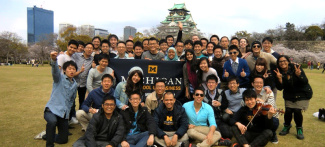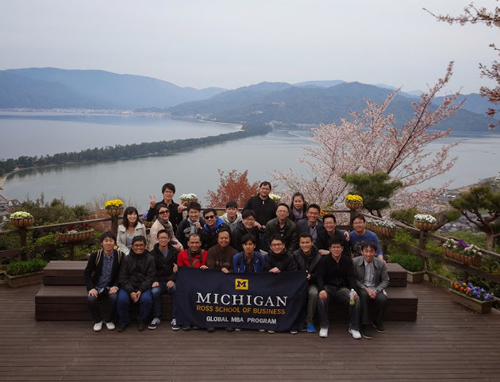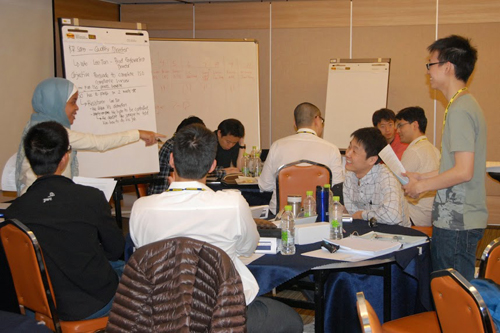I Had Incredible Experiences with Global MBA Students in Korea, Japan, and China

By Naoyuki Tohda, MBA ‘15
My biggest takeaway from the Michigan Ross Global MBA Program is that the key success factor for business in Asia isn’t business logic -- it’s a deeply ingrained sense of humanity. Trusting relationships are a key driver for Asian businesses.
So, if your business wants to penetrate the growing Asian market, you definitely need to stay in Asia with Asian partners!
 The Ross Global MBA Program gave me the opportunity to do just that, with a three-month learning experience in Asia (with one month each in Korea, Japan, and China) where students live together in a hotel, take core classes with faculty members from Ann Arbor, and experience a ton of local business culture in each location. This was the action learning in Asia.
The Ross Global MBA Program gave me the opportunity to do just that, with a three-month learning experience in Asia (with one month each in Korea, Japan, and China) where students live together in a hotel, take core classes with faculty members from Ann Arbor, and experience a ton of local business culture in each location. This was the action learning in Asia.
From breakfast to midnight ramen, we always spent time together.
In Korea, every day after class we struggled together to develop structures for our presentations and messages, and found ourselves staying up until the middle of the night (and sometimes until the next morning).
On weekends, students coming from each country hosted cultural events. In Japan, we went on a hot spring tour and a beautiful Hanami tour (cherry-blossom viewing). The taste of Japanese sake under full-bloom Sakura was awesome!
We also established close-knit relationships with Michigan Ross faculty members.
In China, we enjoyed a tour of the Great Wall with Professor Michael Jensen. And Professor Noel Tichy took us on a tour of Shanghai. We had pretty extensive corporate visits in each country as well. Visiting Samsung, Hyundai Motors, Otsuka Pharmaceutical and more were precious action learning opportunities for me and my classmates.
 After spending time learning and exploring business in Asia, Global MBA students come to Ann Arbor and integrate into the Ross MBA classes here in Michigan. This is another form of action learning in its own right. In some classes at Ross, I heard opinions about Asian businesses: stock market is undeveloped, corporate governance doesn’t work well, etc.
After spending time learning and exploring business in Asia, Global MBA students come to Ann Arbor and integrate into the Ross MBA classes here in Michigan. This is another form of action learning in its own right. In some classes at Ross, I heard opinions about Asian businesses: stock market is undeveloped, corporate governance doesn’t work well, etc.
Yeah… I have to admit that sometimes it’s true. Moreover, it might not be efficient or productive so much in the short term. However, I’d like to say that Asian businesses often pursue collective learning and collective fulfillment, which energizes employees and enables the creation of bigger growth opportunities in the long term.
So how do we find a balance? My experiences in the Michigan Ross Global MBA Program taught me that we need to learn dynamic control in Asian business; considering the situation, we need to figure out what is the best way to bring out higher performance from employees. Exploring and implementing lessons from the Competing Values Framework (something we talk about a lot at Ross), can definitely help here.
Just like meeting new classmates in Asia and staying up until 3 am working, it might be uncomfortable for you at first. But soon, you’ll find yourself in a precious learning zone.
Naoyuki Tohda is a 2015 graduate of the Ross Global MBA Program. After graduation he will be joining Nippon Steel Solutions Corporation in Tokyo, Japan.
This is just one in a series of #RossGrad posts from students graduating this Spring.







